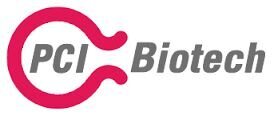PCI Biotech receives positive opinion for Orphan Drug Designation of fimaporfin for treatment of cholangiocarcinoma in EU
Oslo, 25 July 2016 – PCI Biotech (OSE: PCIB), a cancer focused biopharmaceutical company today announced that it has received a positive opinion from the European Medicine Agency’s (EMA) Committee for Orphan Medicinal Products (COMP) for its lead product candidate, fimaporfin, for the treatment of cholangiocarcinoma (bile duct cancer). COMP’s positive opinion is subject to decision by the European Commission for Orphan Designation.
Fimaporfin (AmphinexTM) is in clinical phase I/II development for inoperable bile duct cancer, a disease without approved medicinal treatment and a high need of better local treatment alternatives.
About bile duct cancer (cholangiocarcinoma)
The bile duct drains bile from the liver into the small intestine. Biliary tract sepsis, liver failure and/or malnutrition and cachexia due to locoregional effects of the disease are the most important causes of death. Currently, surgery is the only curative option for these patients; yet the majority of the tumors are inoperable at presentation. Inoperable patients are treated with stenting to keep the bile duct open and with chemotherapy. The combination of gemcitabine and cisplatin has shown promising results and has become standard treatment in some regions, but there is still a need for better treatments to increase overall survival and quality of life.
About PCI Biotech
PCI Biotech is a cancer focused biopharmaceutical company headquartered in Norway and listed on the Oslo Stock Exchange (Axess). The company is developing therapeutic products based on its proprietary photochemical internalisation (PCI) technology. The PCI technology works by inducing triggered endosomal release and may be used to unlock the true potential of a wide array of therapeutic modalities, such as small molecules, vaccines and nucleic acids. The company has a clinical Phase I/II program in bile duct cancer. The company is also developing PCI as a vaccination technology. When applied in the emerging field of cancer immunotherapy, PCI can be used to enhance the important cytotoxic effect of therapeutic cancer vaccines. The PCI technology is also very well suited for intracellular delivery of nucleic acids, such as RNA therapeutics. By releasing nucleic acid compounds from endosomes where they are trapped following administration, PCI addresses one of the major bottlenecks facing this emerging and exciting field. PCI Biotech follows a strategy to create value by improving the effect of existing cancer drugs and by realising the large potential in new therapeutics.
Contact information:
PCI Biotech Holding ASA, Ullernchausséen 64, N-0379 Oslo, Norway. www.pcibiotech.com
Per Walday, CEO, pw@pcibiotech.no, Mobile: +47 917 93 429.
